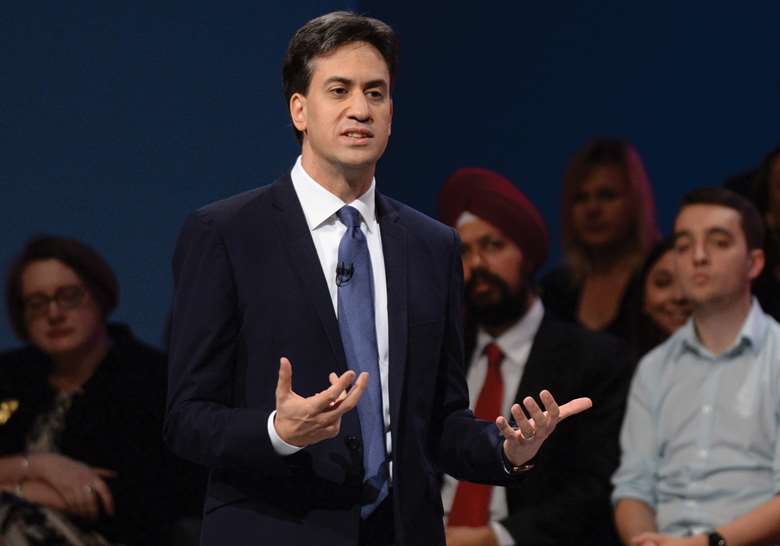Labour outlines plans for sector
Neil Puffett
Monday, September 29, 2014
Improved early years health services and support in developing young people's skills are among the party's proposals.

With the general election seven months away, Labour pledged it would introduce better maternity services for expectant mothers and more apprenticeships for young people at its annual conference in Manchester last week.
As part of plans to invest £2.5bn reinvigorating the NHS, Labour leader Ed Miliband said that if elected, it would recruit an additional 36,000 staff, made up of 3,000 midwives, 5,000 care workers, 8,000 GPs and 20,000 nurses by 2020.
But, should the party triumph at the polls next May, what difference will it make for parents and their children?
The Royal College of Midwives (RCM) welcomed the announcement but pointed to the fact that the additional 3,000 midwives will only just about cover the current shortage in numbers.
Cathy Warwick, chief executive of the RCM, says getting maternity care right is vital in order to improve public health, reduce inequalities and promote the best life chances for all children.
However, Warwick also wants fundamental structural change of maternity services to take place, so services can be modernised and provided in the community where families can be engaged more easily.
Speaking at a fringe debate she said the fact maternity services are traditionally based in hospitals can make it difficult to engage fathers and educate them about the beneficial impact they can have on their child's development.
"Getting maternity care right is fundamentally important if we are to improve public health, reduce inequalities and promote the best life chances for all children," she says.
The 5,000 additional care workers that will be recruited come alongside plans announced by shadow health secretary Andy Burnham to integrate health and social care services - both moves that are likely to have beneficial implications for young carers.
Moira Fraser, interim chief executive at Carers Trust, says Labour's proposals to place a duty on the NHS to identify carers and give them a right to an annual health check are "welcome steps towards ensuring carers are better supported". But she warns that additional funding is also necessary.
"More needs to be done to support all unpaid carers," she says.
"The Care Act, for the first time, puts carers on an equal footing to the people they care for.
"However, without additional funding for social care, carers will still not receive the necessary support. We need all political parties to grasp the nettle and commit to more funding for social care."
Meanwhile, Miliband wants as many people leaving school or college to go on to an apprenticeship as go to university by 2025.
It will be a tough ask - currently, about 400,000 people a year start university, compared with 100,000 school leavers commencing apprenticeships.
Miliband admits it is an "absolutely huge undertaking".
"It is going to require a massive national effort," Miliband said in his main conference speech.
"It's going to require young people to show the ambition to do well and to get on.
"It's going to require schools to lead a dramatic change in education, with new gold standard technical qualifications. And it is going to need business and government to lead a revolution in apprenticeships."
Apprenticeship opportunities
Richard Atkins, president of the Association of Colleges, says apprenticeships can offer young people a real opportunity to "earn and learn". He backs Miliband's move to put pressure on employers to take on apprentices.
"Too few do so at the moment, both from the public and private sectors," he says.
Arguably, the most controversial proposal relating to children and young people came when former Children's Secretary Ed Balls, now shadow chancellor, announced that annual increases in child benefit payments will continue to be capped at one per cent until 2017.
Matthew Reed, chief executive of the Children's Society, said the decision represents a "major real-term cut in support" for 13 million children.
"Policy is about making choices and the shadow chancellor has made a choice - to look for savings by cutting help for children," Reed says.
This, he adds, will see average families face a £400 cut in child benefit a year by 2017.
"We urge the shadow chancellor to reconsider so that children and their already struggling families do not suffer even more unnecessary hardship," he adds.
Alison Garnham, chief executive of Child Poverty Action Group, said that although Balls plans to "re-peg" child benefit increases to inflation in the long run, the commitment to one per cent increases until 2017 is "another blow" for hard-pressed families with children who have "bore the brunt of austerity".
Other Labour announcements from Manchester
- Mandatory reporting of child abuse would only apply to senior children's professionals rather than junior staff
- A Labour government would calculate the number of children affected by parental imprisonment
- The remit of the Youth Justice Board and youth offending teams would be increased from under-18s to under-21s
- Powers and funding related to tackling youth offending would be devolved to local areas
- Shadow education secretary Tristram Hunt pledged to end the "Tory attack" on Sure Start children's centres
- Police and crime commissioners would be scrapped and the £50m savings invested in frontline policing




